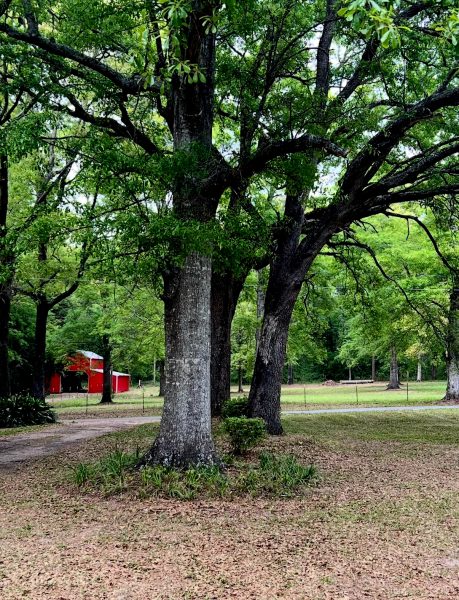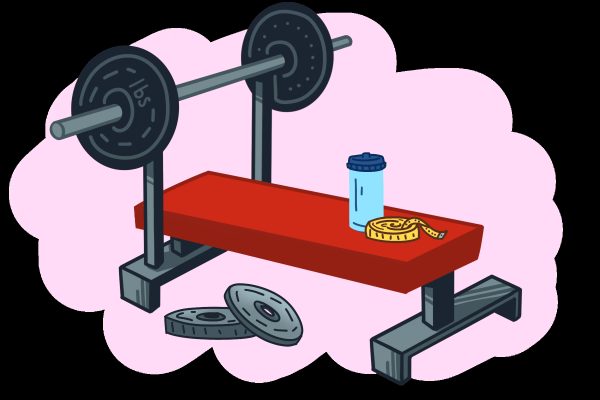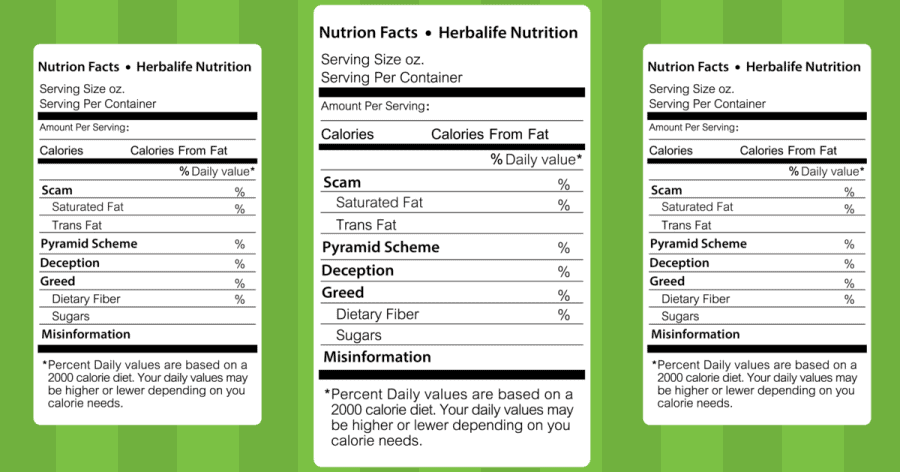Opinion | Herbalife nutrition bars offer teas loaded with empty promises
Herbalife learned their lesson: if you want to mislead people into buying overhyped health food, do it sneakily.
Whether it’s Peachy Keen, Turtle Cheesecake, Watermelon Sugar, Bahama Mama and Butterscotch Cookie, you’ve probably seen it advertised.
If you have lived in Tuscaloosa for the past two years, you may have noticed an upsurge of nutrition clubs popping up around town, advertising these evocatively named beverages with promises of energy boosts and weight-loss.
Rarely, however, do these products deliver on those nutritional promises.
Instead, these clubs owned and operated by Herbalife distributors lure you in with new, colorful concoctions of pseudo-nutritional beverages and ask that you check-in on Facebook at 7:15 every morning to boast about getting your “fix” after spending upwards of $12 for a loaded tea and meal replacement shake.
According to the Herbalife nutrition club website, there are six of these clubs in Tuscaloosa alone, each with a catchy name that never involves the word “Herbalife,” a deceptive marketing technique that washes off the stink of the company’s reputation from the individual club.
As a multi-level marketing company, Herbalife has a sordid past that includes hundreds of millions of dollars in federal penalties, harmful marketing practices that target low-income, minority communities and unfair compensation for its distributors.
Herbalife has been embroiled in controversy from its inception, and as the company grew, so did the financial precariousness of those who bought into the ruse.
The Federal Trade Commission announced in 2016 that Herbalife had to shell out $200 million dollars to its consumers who lost money investing in the company, while also ordering them to “restructure its business” in a way that is more equitable for its buyers.
Additionally, last August, Herbalife agreed to pay a $123 million dollar settlement after the Department of Justice found that they were illegally bribing Chinese officials, making it the third time in four years the company has faced criminal penalties from the federal government.
In the 2016 Netflix documentary “Betting on Zero,” Herbalife distributors lament about their economic turmoil after being guaranteed financial success, with many of them receiving only pennies on the dollar in recourse even after the FTC ruling.
Aside from financial impropriety, in 2012 clinical researchers published an article about Herbalife products and their reported effects of liver toxicity, indicating that the connection was “highly probable.”
Time and time again, Herbalife has proved to be nothing more than a Ponzi scheme that markets its products on a deceptive premise, no matter the financial and health toll on consumers.
Maria Azrad, assistant professor of nutrition at the University, described some of the nutritional information on the Herbalife website as “likely gross exaggerations.”
The website says its recommendation for weight loss is to replace two meals daily with one of its “Formula 1” shakes, which are about 200 calories each, and eat one healthy meal, while also incorporating nutritious snacks for proper caloric intake.
Azrad indicated that this was an unrealistic endeavor for the consumer, and that it was not a long-term solution for weight-loss.
“A normal, healthy adult has an energy requirement of between 1800-2000 calories per day, and if they were trying to lose weight, they may realistically reduce their caloric intake to 1500 calories per day. While following a plan like this could result in consistent weight loss and maintenance, it is likely not directly due to this product, just an absolute reduction in overall caloric intake.”
As far as the loaded teas, Azrad was surprised to see maltodextrin and fructose, although in small amounts, as the first two listed ingredients.
“Maltodextrin, a processed starch and fructose, a naturally occurring starch, can result in a higher glycemic response versus a cup of tea without sugar,” she said.
Some of the loaded teas found in the nutrition clubs contain about 160 mg of caffeine, which is equivalent to what you’d get in about two cups of coffee. According to Azrad, it is not the tea itself that “boosts metabolism” as the website claims, but it is the addition of the caffeine, which offers only a short-term effect for a costly product.
“If you’re looking for a good cup of tea with antioxidants and caffeine, just drink green tea using a teabag from the grocery store, which is a less expensive alternative,” Azrad said.
Not only can you buy a more affordable beverage and get the same effect, community pharmacist Sara McCullough says that you can depend on over-the-counter supplements too.
“Most of the vitamins and minerals offered in Herbalife’s products can be found in the pharmacy section of a grocery store for just a fraction of the cost,” McCullough said.”As a pharmacist, I don’t think I could ever recommend ‘loaded teas’ to someone who wanted to boost their immune health.”
Although the independent distributors and club owners may be ethical, hard-working individuals, the enterprise itself is mired in corruption and mendacity. Herbalife sacrifices the wellbeing of the consumer on the altar of toxic capitalism, and it’s business model is built on exploitation and subjugation.
A company that sells health and wellness products which offer minimal health benefits at a high cost is nothing more than an unmitigated scam.
Herbalife has continued to show that it puts profit over truth, and it depends on consumers to remain unaware and uninformed. It will continue to thrive as it reinvents itself to remain in the mainstream marketplace, but it’s up to the public to be knowledgeable consumers. The exotic teas and dessert-themed shakes make up the glittering veneer for the company, shielding its corruption and manipulation.
As the old saying goes: everything that glitters isn’t gold. Or healthy.












